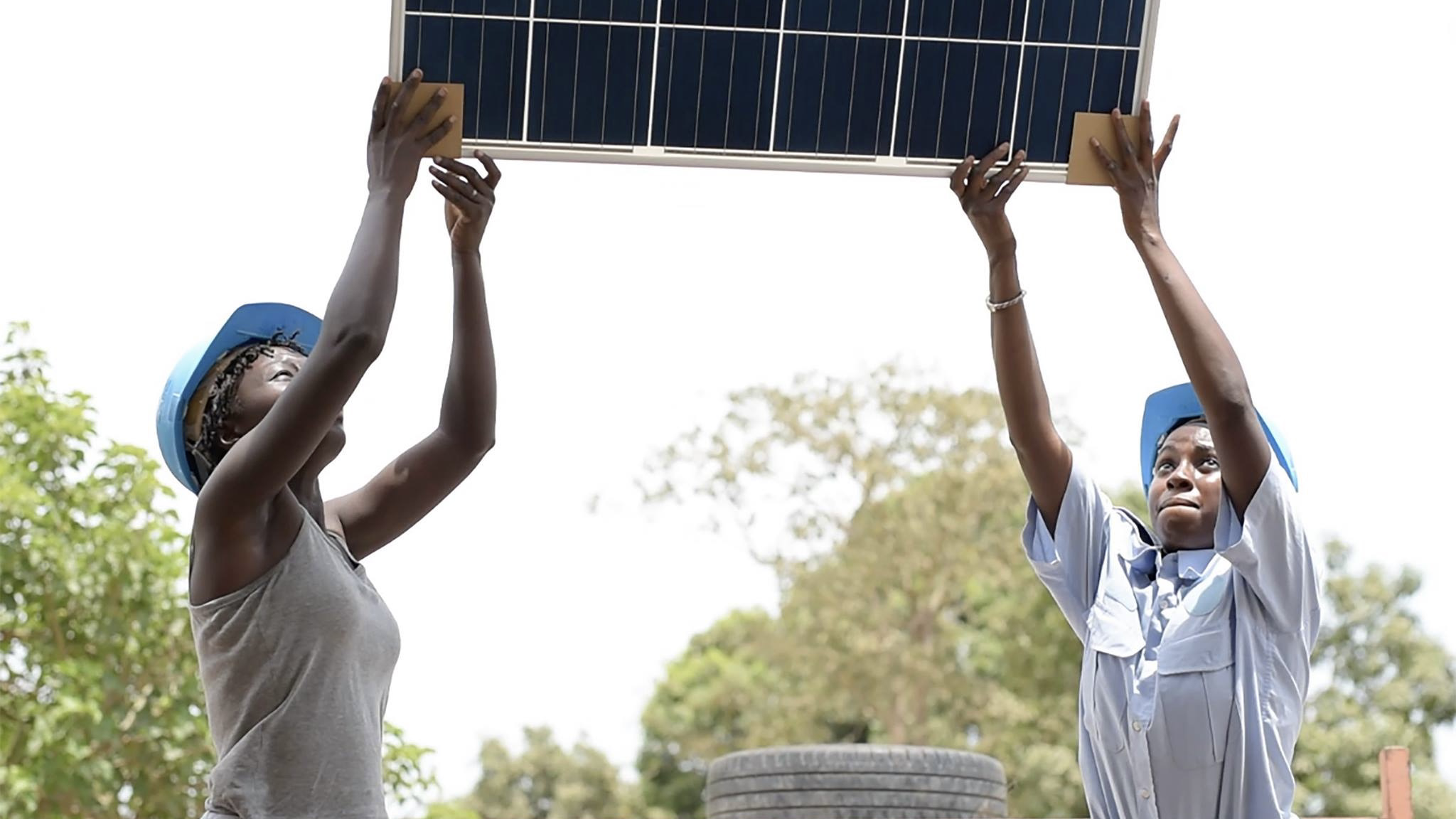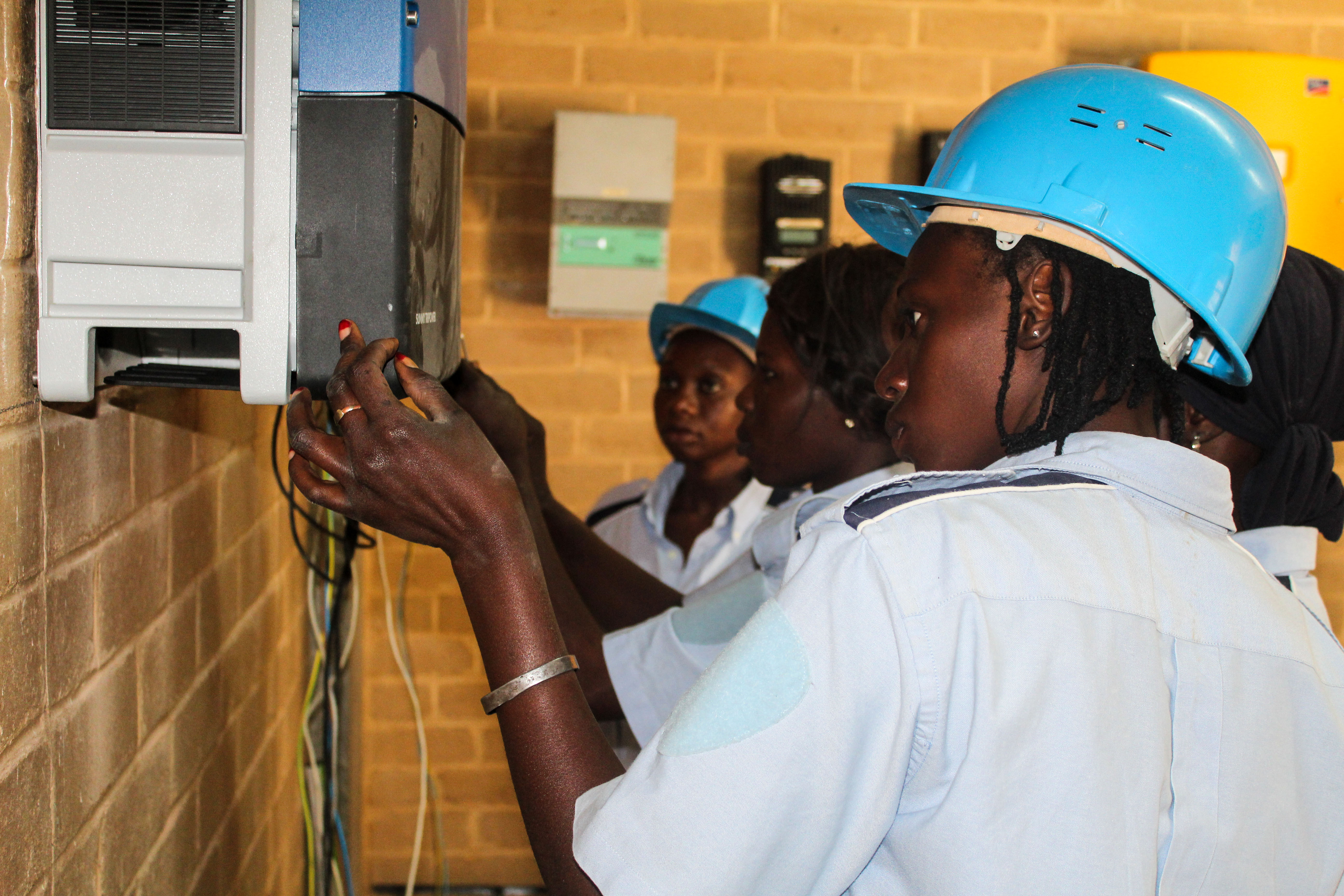

Empowering young women through renewable energy training
22 November 2017 Daniel CHANG
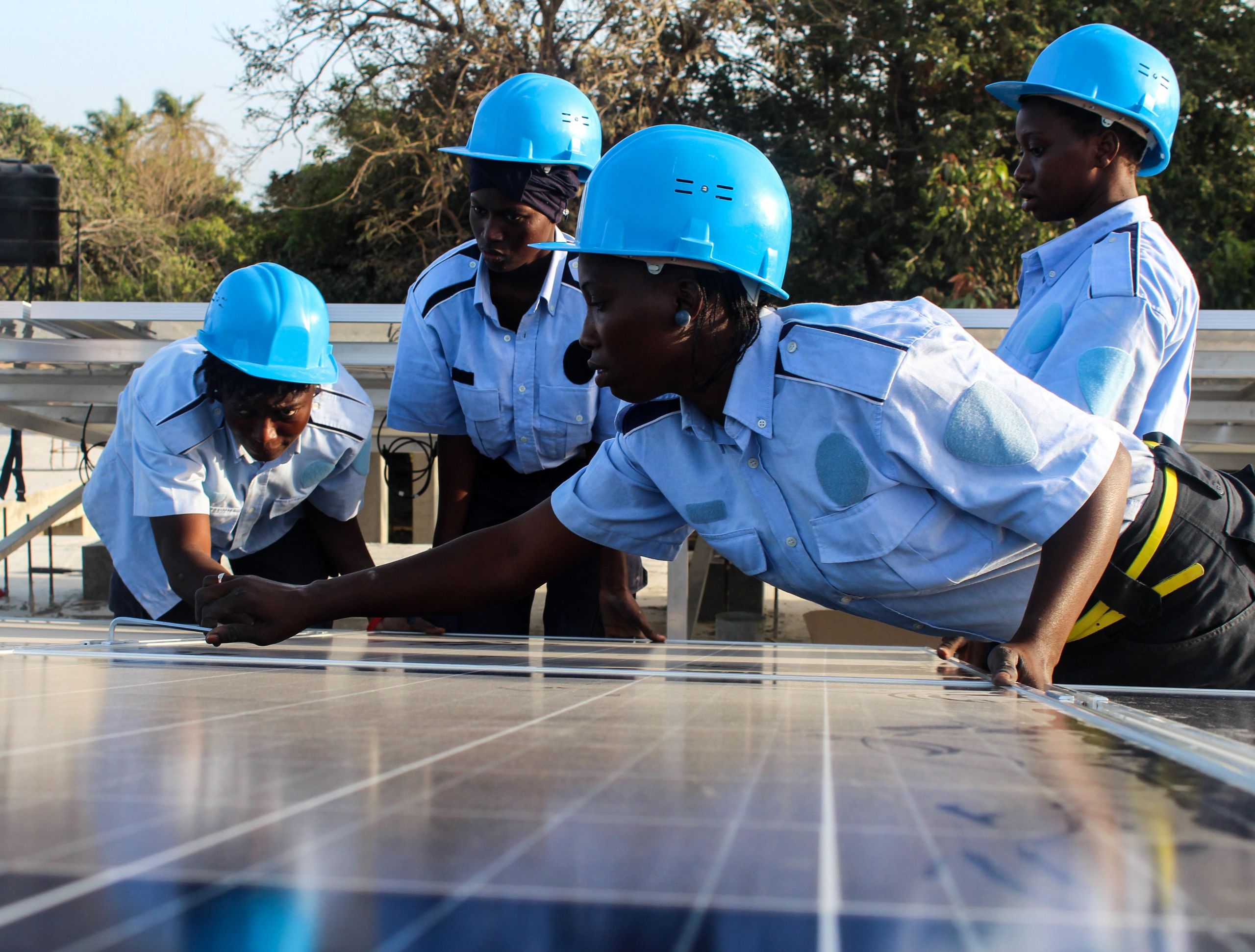
Every day, 120 young women arrive at the centre, located in Tunjeren, a city on the west coast. Inside, they receive basic, occupational and cross-cutting education, including training on cosmetology, nursing, electricity and solar installation, filmmaking and computer training.
Yet, it wasn't always like that.
In 2012, the centre only had one computer and a fuel generator to supply energy for all its activities.
”We had 15 students in front of one screen. One day the computer blew up because of voltage problems and we realized we needed to change,” recalls Malang Sambou, founder of M’bolo, the non-governmental organization behind the Fandema centre.
Today, Fandema has 80 solar panels and a wind turbine operating at full power. It is self-sufficient in terms of power supply and it is inspiring an entire community.

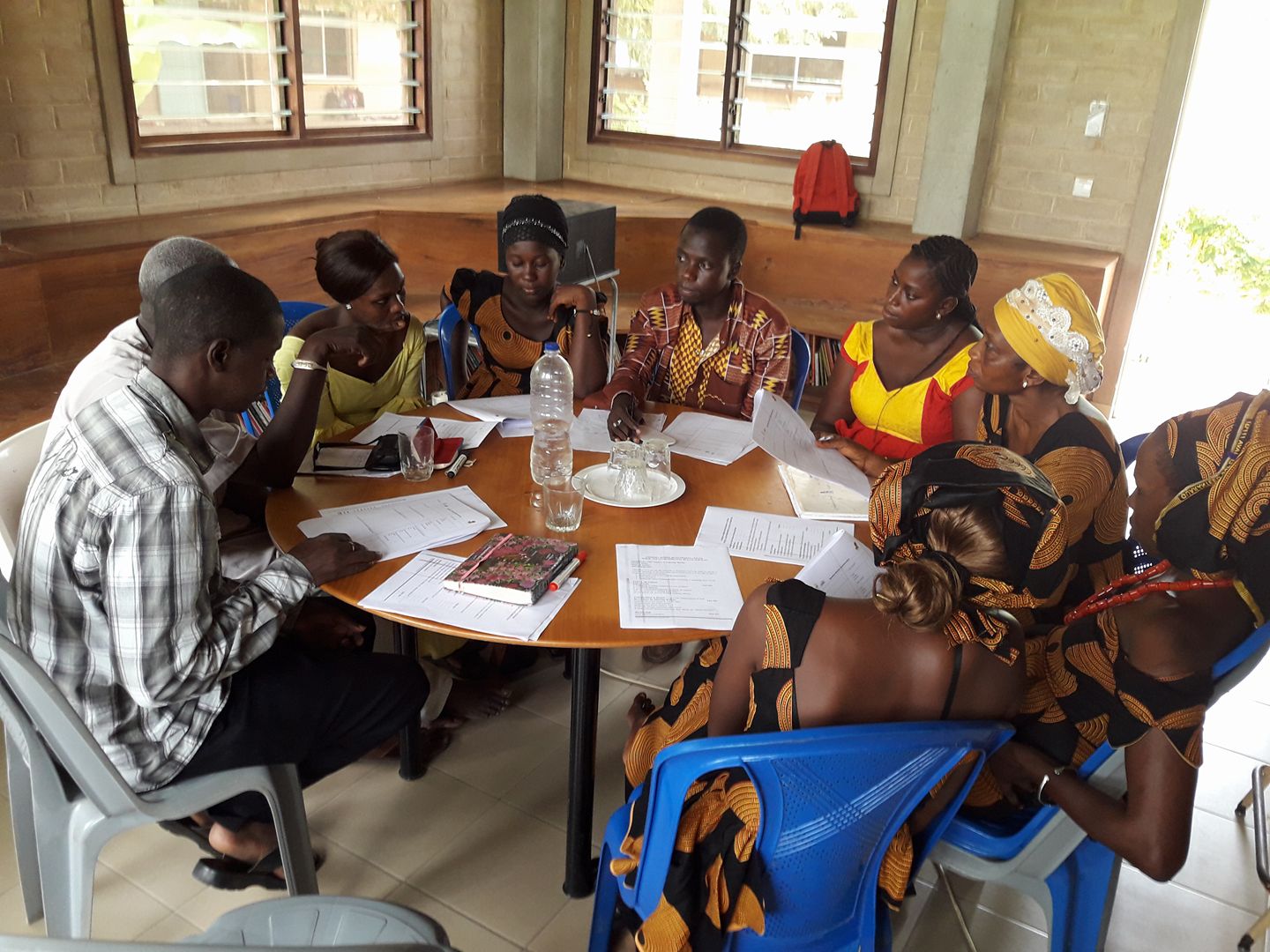
Seeking a reliable energy source and mainstreaming gender
Over the past five years, with the help of two projects funded by the Global Environment Facility (GEF) and implemented by UNIDO, young women have been trained to design, install and maintain stand-alone power systems.
“Thanks to the panels, we now have access to energy and it has given us stability. It has allowed us to grow. Our activities increased from three to 16, and now, with the second installation, we have 37”, Malang added.
During the first project, 14 young women in the area received education on electricity and solar installation. Thirty solar panels were installed.
The second ongoing project is a little bit different and no teachers are required.
Under the supervision of an engineer, the same group of previously trained women is now charged with sharing their knowledge with their peers. They have become “trainer trainees”, and in the process are breaking local stereotypes and promoting gender equality in a country where only 37% of the female population has access to education.
The group has installed 50 panels entirely by themselves, allowing the centre to expand its activities and providing new sources of income to vulnerable young women in the area.
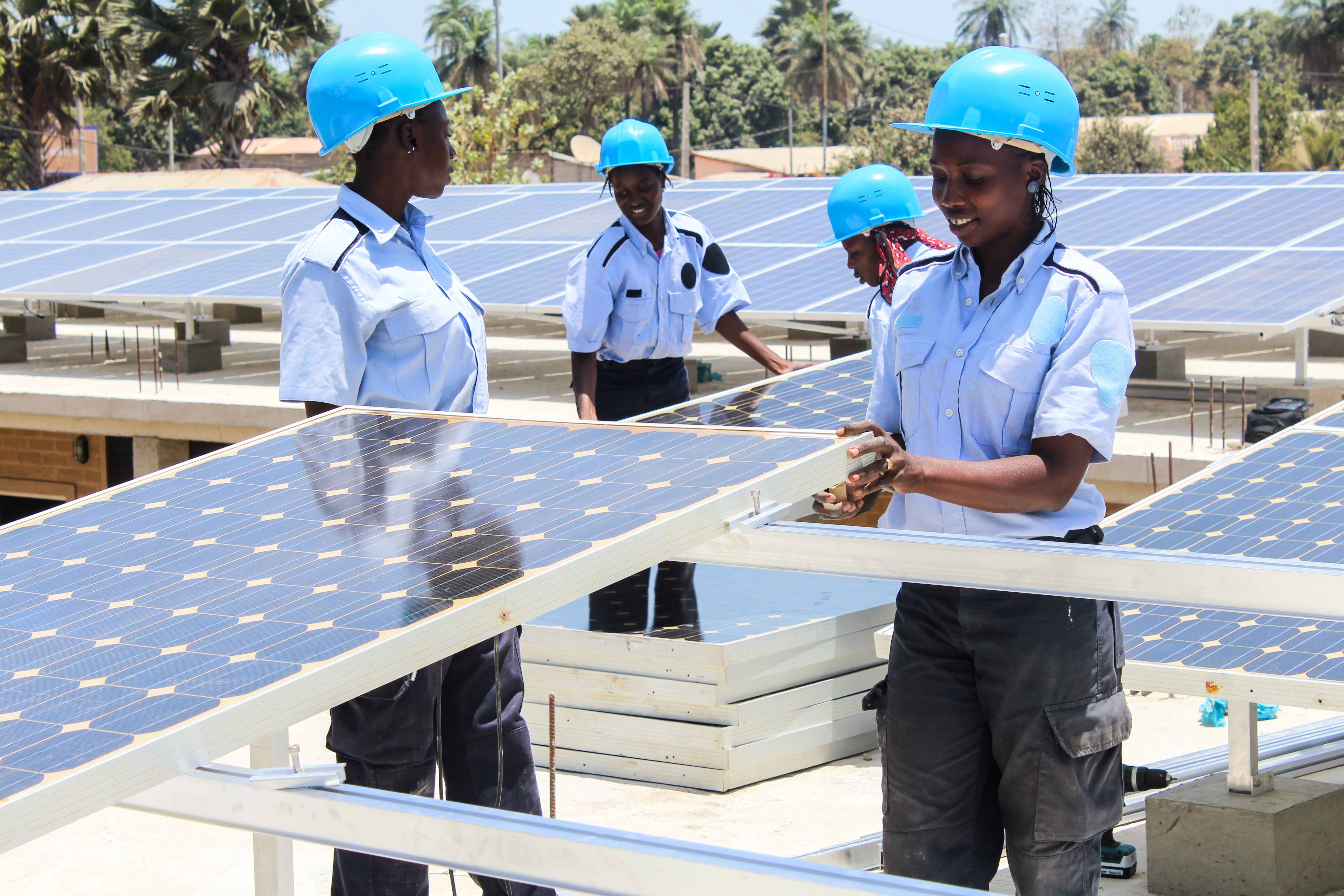
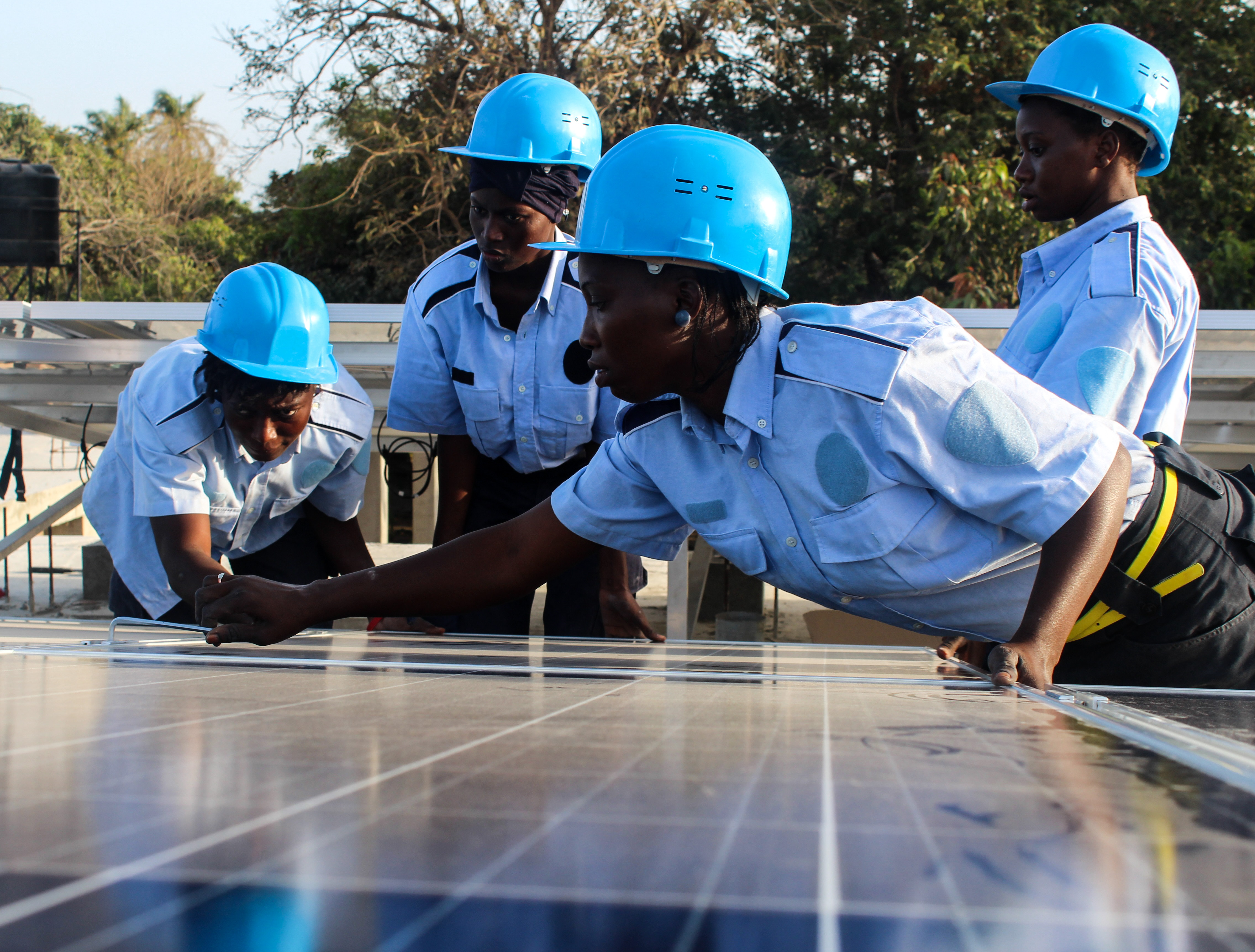
Girl -renewable- Power
Jankey Jassey, 23, is one of them. After finishing the training in Fandema, she fell in love with cables, switches and voltages, and decided to study electrical installation at the Gambia Technical Training Institute (GTTI).
However, for Jankey, Fandema is still a home-from-home, and she comes back three times a week and teaches other young women about the basics of electricity.
“I would like to see many girls like me studying to become an electrician. I discovered this is not only for men and they should too!” she tells us proudly.
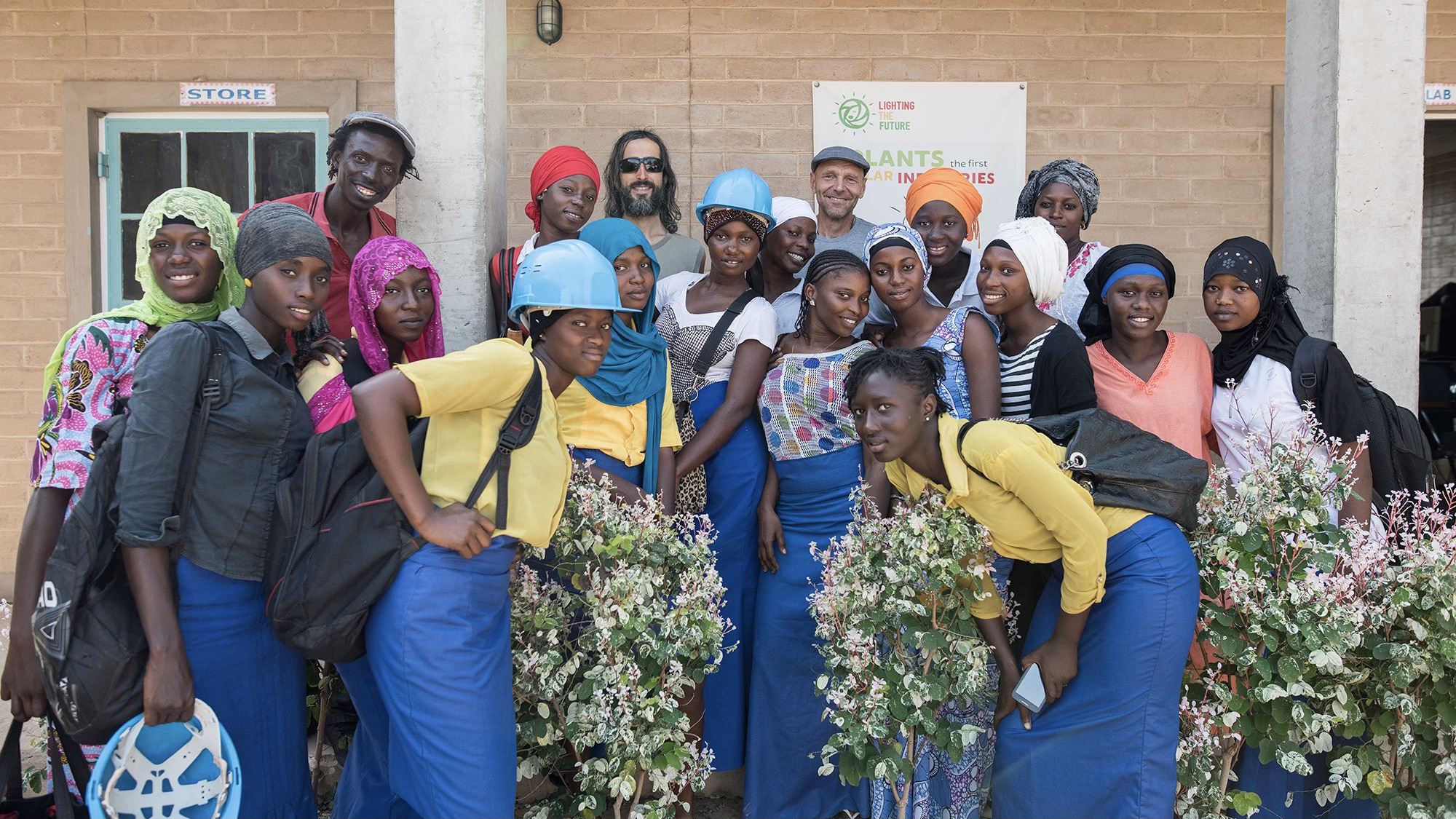
Light at the end of the tunnel
In the Republic of Gambia, over 800,000 people (40% of the population) live in rural areas, yet only few have access to electricity.
In such a dark scenario, Fandema has managed to inspire the community about the use of renewable energies.
Nowadays, in the area around the centre it is common to see buildings with solar panels. According to Malang, “Before there was a lack of confidence, there was no technology or knowledge about solar installations”.
The newly trained solar installers have been requested to carry out the installation for other solar projects outside the centre, including at the city market and for street lighting. Even administrators of a local hotel visited the centre to see what was being done and, as a result, decided to abandon their fuel generators and switch completely to solar energy.
“Renewable energy is helping women unlock economic opportunities,” states Alois Mhlanga, UNIDO project manager leading both projects. “These pilots have not only enhanced the acceptance of renewable energy technologies but have also helped develop the technical capacity needed to sustain the nascent market for renewables in The Gambia” he added.
The road to a fully sustainable centre
Fandema is a third of the way along the path to its objective of becoming a fully sustainable centre.
“We would need 160 more panels to become a completely sustainable organization, and then we will be able to sell electricity, help the community and finance ourselves. That’s our challenge”, Malang says.
